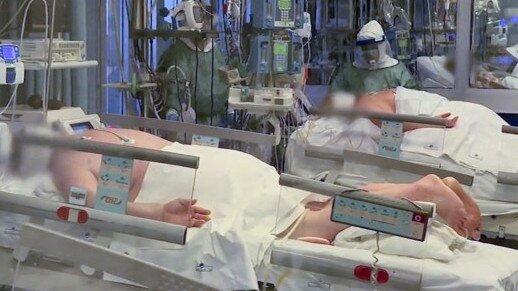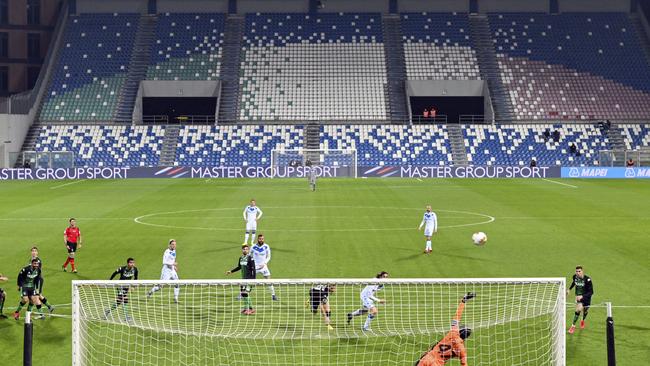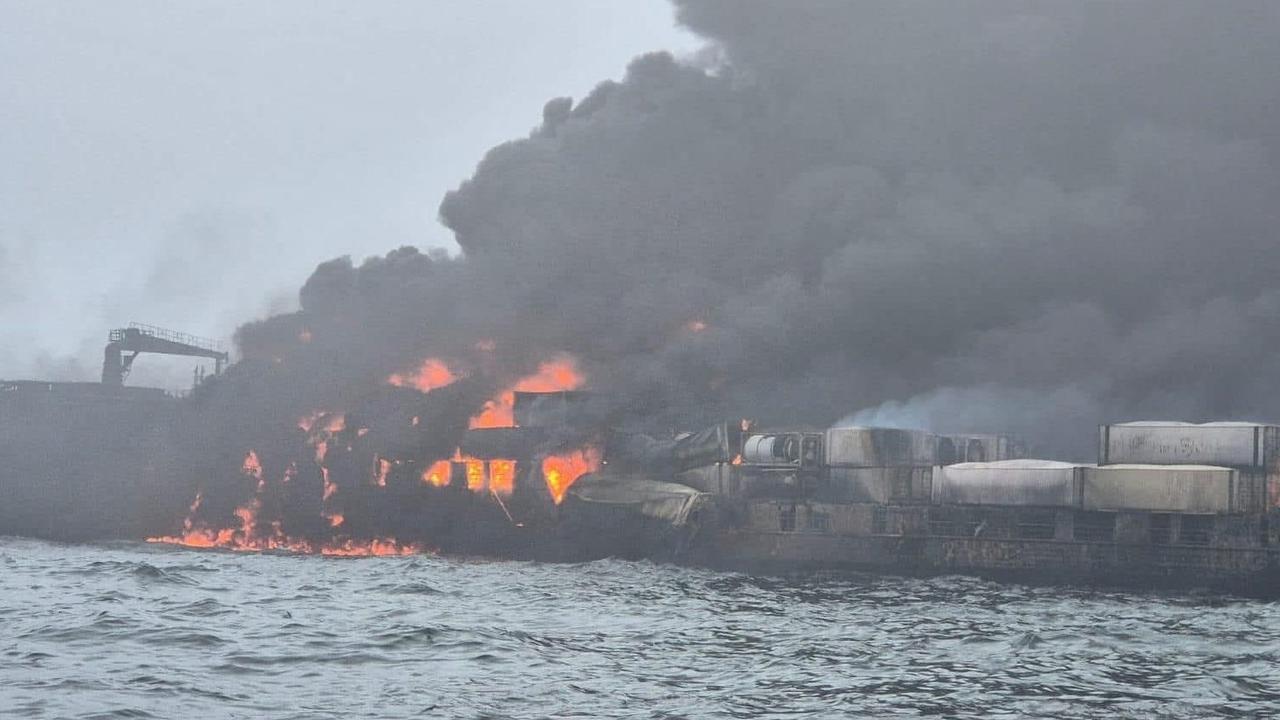EU crisis talks as Italy shuts down over coronavirus
European leaders were planning crisis talks amid fears Italy’s nationwide shutdown should be extended to neighbouring nations.

European leaders were planning crisis talks amid fears Italy’s shutdown of its entire 60 million-strong population could put pressure on its neighbours to impose similar draconian measures to combat the coronavirus.
Italian authorities expressed alarm at a massive spike in deaths and cases by a quarter in just 24 hours, prompting Italian Prime Minister Giuseppe Conte to declare the lockdown covering about 16 million people in the north would be expanded to the entire country from Tuesday.
Italy’s 9172 cases and 463 deaths are the second-highest in the world after China.
The virus’s spread was growing so exponentially that doctors were making comparisons to wartime triage medics deciding who lives, who dies and who gets access to the limited number of ICU beds.
The co-ordinator for intensive care in the crisis unit for the northern Lombardy region, Antonio Pesenti, said Lombardy’s healthcare system was “one step from collapse” despite efforts to free up hospital beds.
Dr Pesenti described seeing “a tsunami of patients”, telling news outlet CNN there could be 18,000 patients in hospital by month’s end if the virus continues to spread.
“I’ve never seen anything like this,” he said. “Italians should be worried. We are now being forced to set up intensive care treatment in corridors.”
EU leaders planned a teleconference call to discuss their response, thought to be aimed at developing a united front to combat the virus but also to contain fears of a short-term economic collapse as a result of the contagion.
French Finance Minister Bruno Le Maire called for a “strong, massive and co-ordinated response from Europe” amid warnings from economists of an EU-wide recession.
Announcing the extension of the most severe measures in Europe to combat the coronavirus, Mr Conte said the nation faced its “darkest hour, but we will make it”.
People are allowed to travel only for work that cannot be postponed, medical reasons or emergencies, with national police officers checking roads. Incoming and outgoing air passengers will have to justify their travel.
Train travellers will have their temperatures checked, while restaurants and bars are allowed to open only from 6am to 6pm, and malls and markets can open on weekdays only if they could assure a metre of distance between each customer. Schools and universities will remain closed until April 3.
All sporting events — including football matches — are suspended nationwide, while cruise ships are forbidden to dock at various ports.
All public gatherings are forbidden, including weddings, funerals and baptisms.
Mr Conte said the best thing was for people to stay at home.
“We’re having an important growth in infection … and of deaths,” he said.
“We all must give something up for the good of Italy. We have to do it now. This is why I decided to adopt even more strong and severe measures to contain the advance … and protect the health of all citizens.”
Lombardy President Attilio Fontana said he was not confident the latest extreme measures would succeed. “A necessary step but, I fear, still insufficient,” Mr Fontana said. “The numbers in Lombardy and in the rest of the country show that the contagion is constantly expanding, with all consequences we know starting with the overload of work in hospitals, in particular in intensive care.”
Guido Giustetto, head of the association of doctors in northern Piedmont, said with triage “it becomes dramatic if rather than doing it under normal situations, they do it because the beds are so scarce that someone might not have access to medical care.”
The Italian society of anaesthesiology and intensive care published 15 ethical recommendations to consider when deciding on ICU admissions during the virus crisis and the ICU shortage. The criteria include the age of the patient and the probability of survival, and not just “first come, first served”.

Italy has been the source of most of the first infections in other European countries, after the first infections mostly came from travellers from China. Some European countries, including Britain, which has experienced just over 300 cases of coronavirus and five deaths, have adopted considerably more modest measures.
British Prime Minister Boris Johnson called for a “national effort” to tackle the virus, saying the country’s medical officers “know how to defeat it”. In the meantime, he said the most practical measure people could take was to wash their hands.
Additional reporting: Agencies




To join the conversation, please log in. Don't have an account? Register
Join the conversation, you are commenting as Logout